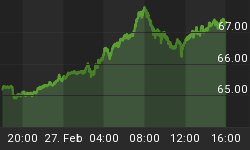
Could Greece blow up the US banking system? Well it all depends on what one means by a Greek default as defined by ISDA. Who is ISDA? ISDA stands for the International Swaps and Derivatives Association. What is ISDA? ISDA is a trade organization of market participants for over-the-counter-derivatives. It is headquartered in New York City. In the derivatives business there is a standardized contract known as a "master agreement". There are more than 800 members in 57 countries.
ISDA was originally created in 1985 but it really took form in the 1990's. While originally the main OTC derivative was interest rate swaps it now encompasses numerous derivative products including credit default swaps (CDS). ISDA has an organization has been very successful in defeating regulatory attempts on the vast derivatives market. Globally the Bank for International Settlements (BIS) estimates that there is some US$707 trillion notional amount of derivatives outstanding as of June 30, 2011. That translates into a market value of over US$19 trillion.
So what does ISDA have to do with Greece? A deal is in the works whereby private debt holders would receive only 30 cents on the dollar for their Greek debt. It is estimated that Greece owes roughly $260 billion to private banks. Greek debt holders have apparently agreed to a 50% reduction in their debt they hold but no agreement is as yet in place for a 70% reduction. In addition to a decrease in the nominal value of their debt new bonds would be issued with lower interest rates. As a result the private banks may have to absorb considerable losses.
Behind the Greek debt are credit default swaps (CDS). ISDA has ruled that as long as any debt agreement is voluntary there would be no call on the CDS and buyers of the CDS would have not received any payout. In the original discussions the 50% cut was considered voluntary and therefore there would be no payout. But what of a 70% cut? Would it be voluntary or forced? How might ISDA rule then?
In an interview on January 31, 2012 with the Ellis $Martin Report www.thereport.com well known gold analyst Jim Sinclair www.jsmineset.com outlined that the decision as to what constitutes a default lies with ISDA. Globally there is roughly US$32.5 trillion notional value of CDS outstanding. Of that about half is held by US Banks. The five banks hold over 97% of CDS in the US. Those banks are JP Morgan Chase (JPM-NYSE), Bank of America (BAC-NYSE), Citibank (C-NYSE), Goldman Sachs (GS-NYSE) and HSBC Bank USA (LSC-AMEX). The five are also key members of ISDA.
Effectively the largest issuers of CDS and Greek debt CDS are the ones involved in the decision making that would determine whether a 70% debt cut for Greek debt is a default or a voluntary reduction. As to the financial institutions that managed their debt by buying the hedge of CDS they are concerned and of course upset that they may face 70% losses on their holdings but be unable to collect on their hedge.
Sinclair is concerned rightfully so because if the buyers of the CDS are unable to collect on their hedge it throws into question trillions of dollars worth of CDS that have been written many of them by the 5 large banks noted above. The trouble is that the potential losses on the Greek debt plus many others if the CDS hedges were declared a default would more than wipe out the capital of these large banks. The spectre of the US banking system collapsing because of CDS is enough to unnerve everyone. Thus Sinclair's concern was understandable as all of this is being underreported.
But it has not gone unnoticed. This now according to Sinclair puts the recent announcements by Fed Chairman Bernanke in perspective. Interest rates are to be held basically at current levels until 2014; there appears there will be another round of QE. The swaps being transacted between the Fed and the ECB are also effectively a form of QE. This then appears to be unlimited QE on a global basis.
QE is bad for the US Dollar. But QE is good for gold, gold stocks and it is also good for the stock market. This may help explain why the S&P 500 jumped 4.3% and gold was up 11% in January. The US$ Index fell 1.4% in January and is down 3.2% from its recent highs.
What does all this mean, however, for the bank stocks? The PHLX KBW Bank Index jumped 8.1% in January but the TSX Financials Index was only up 2.4%. It is possible that they benefitted from QE and the general rise in the market. Goldman Sachs is not a part of the KBW Index but GS did jump 23% in January. But all of them were down this past week. And all of them including GS hit the 40 week MA an area that often has proven to offer strong resistance. If the bank indices are unable to break through the 40 week MA and make new highs for this up move even as the rest of the market is rising it could be a signal that bank stocks are not the place to be. The charts have a downward slope to them suggesting that the more likely direction is to the downside not up.
Given the uncertainty in the market surrounding Greek debt and its potential impact on the banks it is probably advisable that there are better places to invest then in bank stocks. While Canadian banks exposure to Greece is low problems in the US and the global banking system does impact the Canadian banks usually negatively. In the interim what constitutes a Greek default is in the hands of ISDA. At the moment, however, 30 cents on the dollar settlement probably does not constitute a default.















